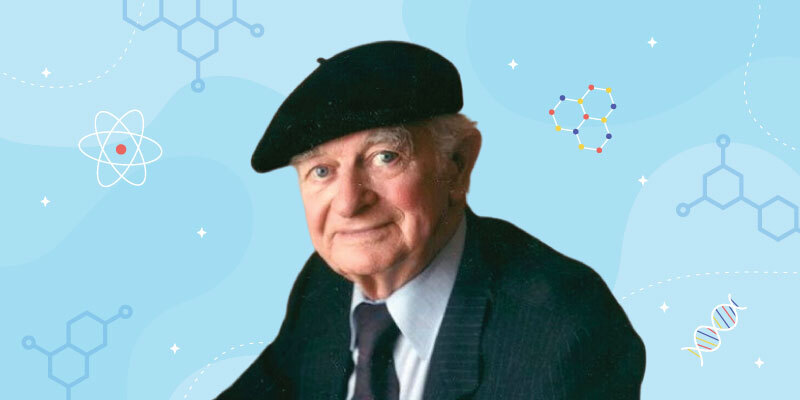
“Have your green vegetables, they’re full of vitamins!”
We’ve all heard this line before, especially when mom offers her version of a ‘healthy meal’, right? It’s not great at times, but making sure we get all the nutrients we need is important. Some people even take vitamin supplements to make sure their body gets the vitamins it needs to function properly.
But who made vitamins such a big part of our nutrition anyway? And what are vitamins, and what makes them so important?
While many scientists and their research can be credited with highlighting the importance of vitamins, Linus Pauling is one scientist who had the most controversial research. Here’s why.
The Eccentric Scientist with Two Nobel Prizes
Linus Pauling was an American scientist of global repute for his groundbreaking work in the field of chemistry. He was also a world-renowned author, educator and activist. He also holds the distinction of being one of the only two people in the world to have won two individual Nobel Prizes in different fields (the other person being Madam Curie).
Pauling’s exposure to science began early, as both his parents belonged to the pharmaceutical field. He studied at the California Institute of Technology and the Arnold Sommerfield Institute for Theoretical Physics in Germany. He was one of the first scientists to work in the fields of quantum chemistry, molecular biology and orthomolecular medicine.
In 1932, Pauling introduced the concept of electronegativity, which is a chemical property that shows how well an atom can attract electrons when forming a chemical bond. In 1954, Pauling worked on the molecular structure of DNA, which later led to the discovery of the double helix structure of DNA. The same year, he was awarded his first Nobel Prize in Chemistry for his book, The Nature of Chemical Bonds. The book is used as a textbook for chemistry even today, as it is one of the earliest research pieces that take an in-depth look at chemical bonds.
Pauling The Pacifist
Pauling was of the leading scientists in the US and the world in the 1930s and 40s when World War II broke out. So it was natural that he worked on military research and development, which meant that he was researching weapons and how science can help wartime efforts.
After the war ended, however, Pauling saw the dangers of combining science and weapons. Along with his wife, Ava Helen Miller, Pauling started campaigning against the use of atomic weapons and became a staunch pacifist (someone that is against war and all kinds of violence). Their work also led them to research and protest the use of nuclear weapons and nuclear weapons testing. For his work in this particular field, he was awarded the Nobel Peace Prize in 1962.
The Believer
Pauling made many waves with his revolutionary work in the field of chemistry and his activism. He went on to teach at Stanford University and the University of California and do more research in chemistry. His research led him to the area of vitamins. What are vitamins, why are they important, and how do certain vitamins react and behave – these were just some of the areas he looked into. This is where he stumbled upon Vitamin C, which he proposed was a cure-all.
Pauling believed that having large doses of Vitamin C could cure colds and the flu and even help cancer. He wrote books, gave many presentations and even followed a strict Vitamin C regimen. His strong belief led many people, mostly Americans, to take a lot of Vitamin C in order to cure their colds. Sadly, his research was later proven wrong, and vitamin C was proven ineffective against colds and cancer.
Pauling died on 19 August, 1994 due to cancer. Despite the controversies surrounding his later work, he will always be remembered for his pathbreaking work in chemistry and his activism for peace for everyone.
Read more about scientists and their amazing discoveries in ‘Did You Know?’:
Charles Darwin, Alfred Wallace & The Theory of Evolution
Nikola Tesla: The Unusual Life of a Forgotten Genius
Meet Kati Kariko, the Ignored Scientist Who Saved the World From Covid-19
Madhavi is passionate about everything to do with books, art, literature, films, trivia and food. A former journalist, she believes that asking questions makes life interesting.